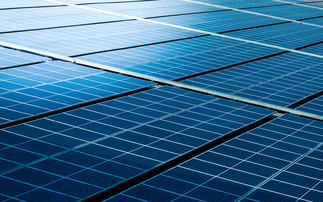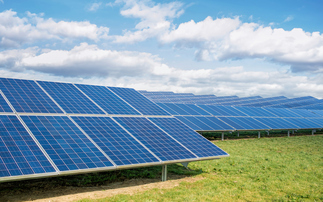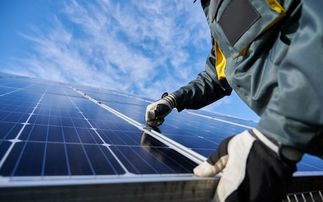In the first in a two part series, BusinessGreen Plus explores what companies need to know when considering onsite solar installations
However, even if the modelling reveals that investment in a solar array makes sense, many companies may not have the cash flow to cover the upfront costs of a PV system, or would prefer to invest any spare capital in other projects. Businesses in this position may find asset financing options a more attractive alternative than straight capital investment. Under such agreements, the financier will purchase the system, rent roofspace from the company, and, typically, keep the FiT payments. The company meanwhile benefits from free - or substantially cheaper - electricity generated by the panels, as well as the reputational benefits of having a renewable energy system visible to employees and customers.
However, directors are often wary about entering into long term agreements unless the benefits are clear, according to Toby Ferenczi , chief technology officer at Engensa, a solar installer that offers a solar loan scheme calculated to ensure the fee for the system is covered by the resultant energy savings and FiT payments.
"PV is a long-term asset," he says. "For the economics to work you want to find a company that will provide you with a loan over as long a period as possible to get payments down and at a low interest rate. Ideally, you want it over 20 years, which is as long as a PV system qualifies for FiTs."
This loan could even come from the landlord if the company is based in leased premises. Solar can represent a particularly attractive investment for landlords as they can keep the resulting FiT payments and sell electricity to the tenant under a power purchase agreement (PPA), while promoting their property as a green option for prospective tenants.
Suzanna Lashford, head of commercial sales at Solarcentury, says the case should be made more widely that that landlords may be able to increase rents as a result of solar arrays or ensure tenants are in situ for lengthy periods of time.
"PV systems could add value to the property and will tie tenants into staying in the property," she says. "Plus, there's a guaranteed energy source."
However, companies that own their panels outright need not be tied to their current premises - many solar panels are fully transferable should the company decide to move.
Some companies may wonder whether, as solar PV module prices fell 24 per cent over the course of 2012, if it is worth waiting for prices to fall even further before making an investment. Solar companies say that while prices may fall, large improvements in output are not expected in the near future, undermining the case for delay.
"There will be further cost reductions, but not quite such dramatic slumps," Ferenczi says. "FiTs are designed to keep the return on investment flat, anyway, so now is as good a time as any."
He adds that getting a system installed for the beginning of the financial year will allow it to capture the whole of the summer in the first year, maximising returns.
Read the second part of our guide to installing solar, covering practical tips for installation and maintenance tomorrow.








